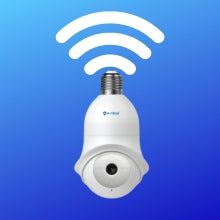Modern society has seen a widespread adoption of security cameras, providing advantages for both residential and commercial purposes. Nonetheless, along with their benefits, they bring about certain drawbacks and factors to consider. Let's explore the advantages and disadvantages of security cameras:
Advantages:
Deterrence of Criminal Activity:
Security cameras, when visible, serve as a deterrent, dissuading potential intruders or wrongdoers from targeting a property. Their presence signals surveillance, heightening the perceived risk of detection.
Surveillance and Monitoring:
Continuous surveillance by security cameras allows real-time monitoring of activities on the property, aiding in the identification of security breaches or unauthorized actions.
Evidence Collection:
In cases of crimes or security incidents, security camera footage serves as valuable evidence for law enforcement, insurance claims, or legal proceedings, enhancing the chances of apprehending perpetrators and securing convictions.
Remote Monitoring:
With WiFi-enabled capabilities, security cameras offer remote access to live feeds and recordings via smartphones or computers, providing homeowners or business owners with peace of mind by allowing them to check on their property from anywhere.
Safety and Peace of Mind:
By monitoring vulnerable areas like entry points or outdoor spaces, security cameras contribute to enhanced safety and peace of mind for occupants, alleviating concerns about security threats.
Employee Productivity and Accountability:
In commercial settings, security cameras promote employee accountability and productivity by discouraging misconduct or theft, fostering adherence to workplace policies.
Integration with Smart Home Systems:
Modern security cameras seamlessly integrate with smart home systems, offering features such as motion alerts and remote control, enhancing convenience for users.
Disadvantages:
Privacy Concerns:
Positioning security cameras in sensitive areas or using them for intrusive monitoring can raise privacy concerns, potentially leading to conflicts or legal issues.
Cost of Installation and Maintenance:
Initial setup costs, ongoing maintenance expenses, and subscription fees for monitoring services can contribute to the overall cost of owning a security camera system.
Vulnerability to Hacking:
WiFi-enabled security cameras may be vulnerable to hacking if not properly secured, posing a risk to privacy and security.
Legal and Regulatory Compliance:
Compliance with legal and regulatory requirements regarding privacy and data protection is essential when using security cameras to avoid fines or legal liabilities.
Limited Coverage and Blind Spots:
Security cameras have limitations in coverage area and field of view, leading to areas with limited surveillance and potential blind spots.
Dependence on Power and Internet:
Stable power sources and internet connectivity are necessary for security cameras to function effectively, making them susceptible to disruptions in case of power outages or network failures.
False Alarms and Nuisance Alerts:
Motion detection features in security cameras may result in false alarms due to various factors, causing inconvenience or confusion for users.
In conclusion, while security cameras offer various benefits such as crime deterrence and enhanced surveillance, they also present challenges like privacy concerns, installation costs, and cybersecurity risks. Property owners and businesses should carefully weigh these pros and cons and take appropriate measures to address potential drawbacks while maximizing the benefits of video surveillance technology.
